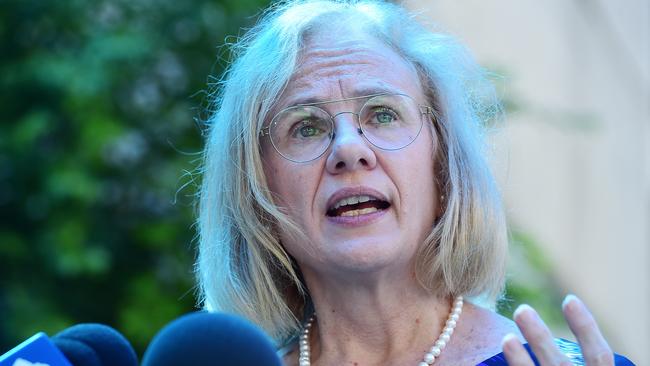Qld makes special plans for regions most vulnerable to coronavirus transmission
Queensland Health has special plans in place for those sections of the state that stand to be more devastated by the virus than other areas if it gets loose.
QLD Coronavirus News
Don't miss out on the headlines from QLD Coronavirus News. Followed categories will be added to My News.
FOUR remote Queensland regions are yet to record a case of pandemic coronavirus, but stand to be more devastated by the virus than other areas if it starts spreading through their indigenous communities.
‘PEAK’ TIME REVEALED: QLD COVID CASES JUMP BY 39 TO 873
LONG BORDER QUEUES AS COPS TURN CARS AWAY
BREASTSCREEN QLD SUSPENDS ROUTINE MAMMOGRAMS
HEALTH AUTHORITIES WORKING ON SNUFFING OUT CAIRNS CLUSTER
The Torres and Cape, North West, South West and Central West Hospital and Health Service districts are the only regions yet to have a positive case of the virus in Queensland.
Chief Health Officer Jeannette Young said plans had been put in place to fly people out of Aboriginal and Torres Strait Islander communities to a “higher level of care” once they are confirmed as having COVID-19.
“I am, of course, very, very concerned about Aboriginal and Torres Strait Islanders who end up getting infected because they will be at higher risk of having complications,” Dr Young said.
“We’ve got a system in place to move them out of their more isolated remote communities to an intensive care unit so that they will get the care that they need.
“We currently have four planes on standby, additional to the normal cohort of planes that we use in Queensland, so that we can rapidly move people if they become positive.”

Dr Young has said Queenslanders 65 and older were at particular risk if they developed the novel coronavirus.
But she said Aboriginal and Torres Strait Islanders aged 50 and older were also vulnerable because of their high rates of chronic disease.
Revered indigenous elders would be at particular risk if the virus started spreading through their communities.
Overcrowded living conditions in some communities would also make it difficult to contain the virus if it was brought in.
Under public health restrictions introduced to combat the virus, Aboriginal and Torres Strait Islander communities are effectively in lockdown to try to keep them free of the virus.
Only essential supply deliveries, including food and medical supplies, and essential service personnel are exempt so they can continue delivering important services such as healthcare, police and emergency services.
Most of the virus cases so far have been concentrated in Queensland’s southeast, where the bulk of the state’s population is based.
Three of the four Queenslanders who have died with COVID-19 have been on cruises in the days before their deaths, two of them on the Ruby Princess.
A Federal Health Department spokesman said more than two-thirds of Australia’s 5224 cases acquired their infection overseas.
He said about a quarter of the internationally-acquired infections had developed the virus while at sea.
LATEST QUEENSLAND HEALTH FIGURES BY REGION
Metro North 242
Metro South 191
Gold Coast 165
Sunshine Coast 79
Darling Downs 39
West Moreton 37
Cairns and Hinterland 24
Townsville 20
Wide Bay 19
Mackay 11
Central Queensland 8
Torres and Cape 0
North West 0
South West 0
Central West 0


